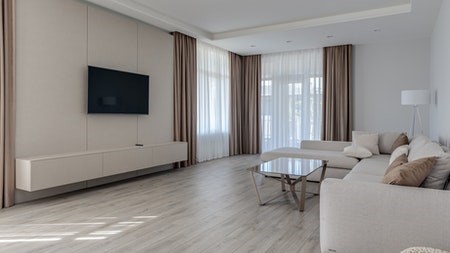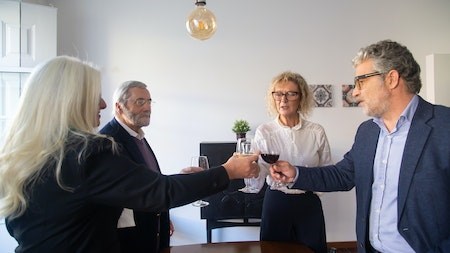For more than a year now, our homes have also been our offices, our gyms, our classrooms, our bakeries and our coffee shops and pubs – and for many people, that is not going to change much in the near future.
“In fact, we believe some of the shifts that have taken place in the way people work and learn and entertain are actually going to become permanent in the post-Covid world,” says Gerhard Kotzé, MD of the RealNet estate agency group.
“Thanks to technology, many more employees and entrepreneurs have now discovered the benefits of working at home (and the savings to be made), and traditional employers and even government departments are increasingly embracing the trend.
“Education - and higher education in particular – has made a really big swing in the past year towards online learning, with the realization that this not only enables institutions to keep delivering to current students but also to reach many others who are far away from a physical campus and have no prospects of getting there.
“And on top of that, home entertaining has become very popular again, as reflected in the high demand for online cooking and baking courses even post-lockdown, as well as the increased interest in heritage recipes and beautiful vintage crockery.”
However, he notes, as it sinks in that the live-work-and play adjustments that were meant to be temporary are most likely here to stay, many homeowners are also realizing that they need to make some permanent changes to their properties to accommodate the “new normal” in comfort.
“For example, it is important to designate specific ‘zones’ in your home for different activities, including exercise and play/ leisure as well as learning and work. It is difficult to concentrate on an important business call, for example, if you have to work off the kitchen table where the rest of the family is currently eating breakfast.
“Similarly, it is hard to focus on your next school assignment if you are in the same room as a sibling who is currently playing loud music, and the best place for the treadmill may not actually be the sitting room or TV room where everyone probably spends a lot more time than they did previously.
But before you decide that you have to move or add on an extra bedroom or a home office, Kotzé says, you might just need to have a serious declutter and do some innovative thinking about the space you already have. “For example, if you’re not commuting now, or shuttling children to school and back, you may find you really only need one car instead of two, or no vehicle at all. In which case, you might have a spare garage that could easily be turned into a home office for two, or a home gym.
“Or if your main bedroom is spacious and not getting much use during the day, why not see if you can set up a quiet workstation there where you can take calls and video meetings without being interrupted? Or perhaps you could move your dining table to the patio and convert that space into a learning/ homework centre for your children, while limiting computer games and music to their own rooms. There are so many things you can do to adapt your home to your family’s new lifestyle.”
He says there are also three easy fixes for creating a fresh and stimulating indoor environment for everyone and eliminating any “boxed in” feelings. These are:
1.Getting rid of ornaments, photos and “counter clutter” and replacing them with a few plants.
“Not only do plants bring the attractive colours of nature inside, they also add oxygen to your home – which is something most of us could definitely use, especially when winter comes and we start spending even more indoor time together.”
2.Maximise your exposure to natural light.
Position desks near windows if you can, and keep all the curtains and blinds open during the daytime. Add reflective surfaces like a mirror, a metallic lamp or a shiny tabletop to enhance the light in a dark room.
3.Experiment with colours.
“Painting the walls is still one of the easiest and most cost effective ways to immediately invigorate your home, whether you choose the classic cool neutrals, or go for something more daring. At the moment we are advising paler shades of green and blue because they are associated with nature, good health, calm and well-being.”





